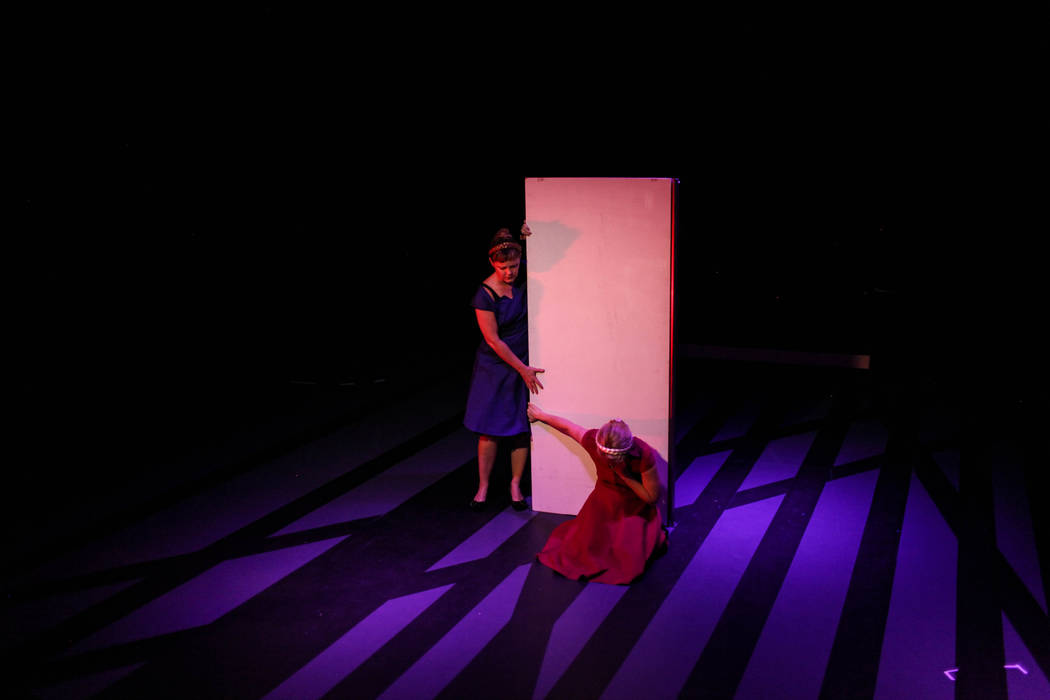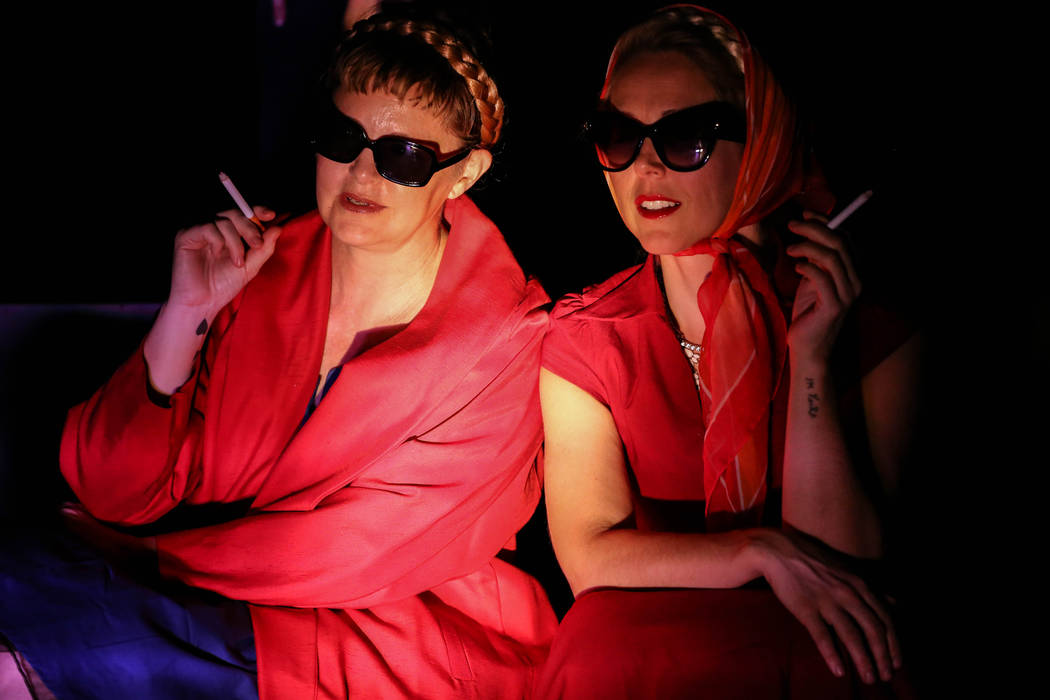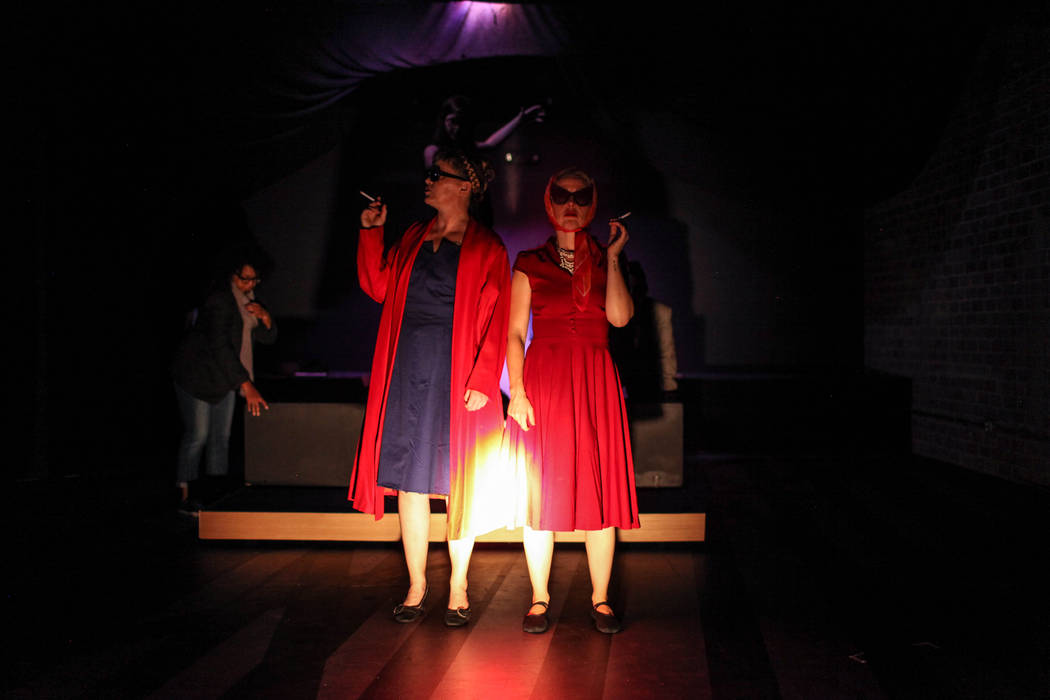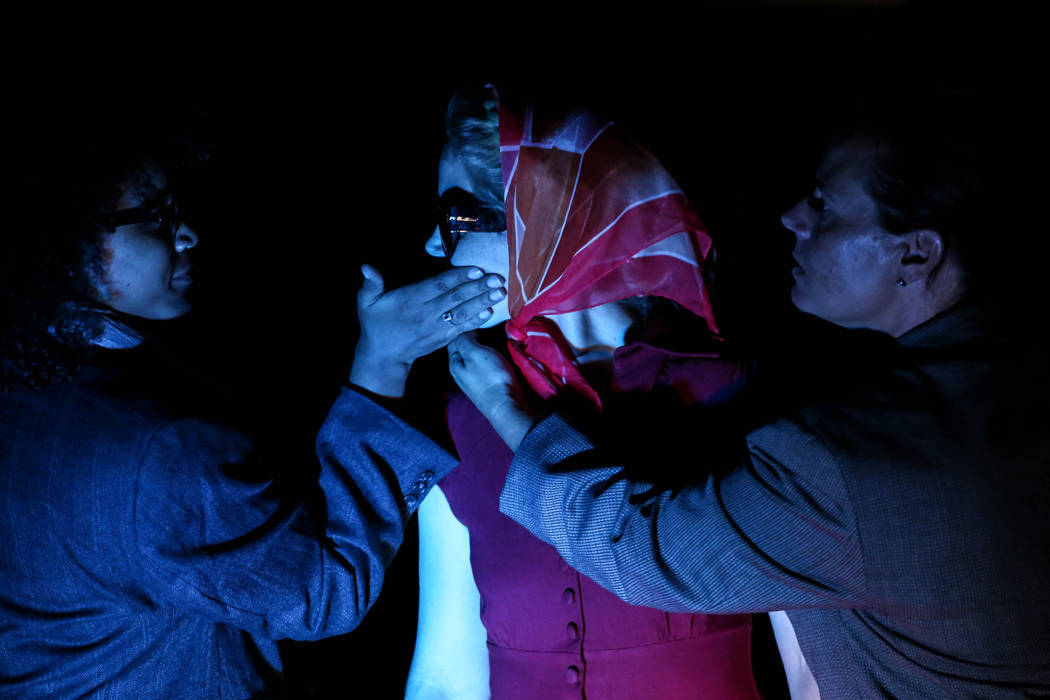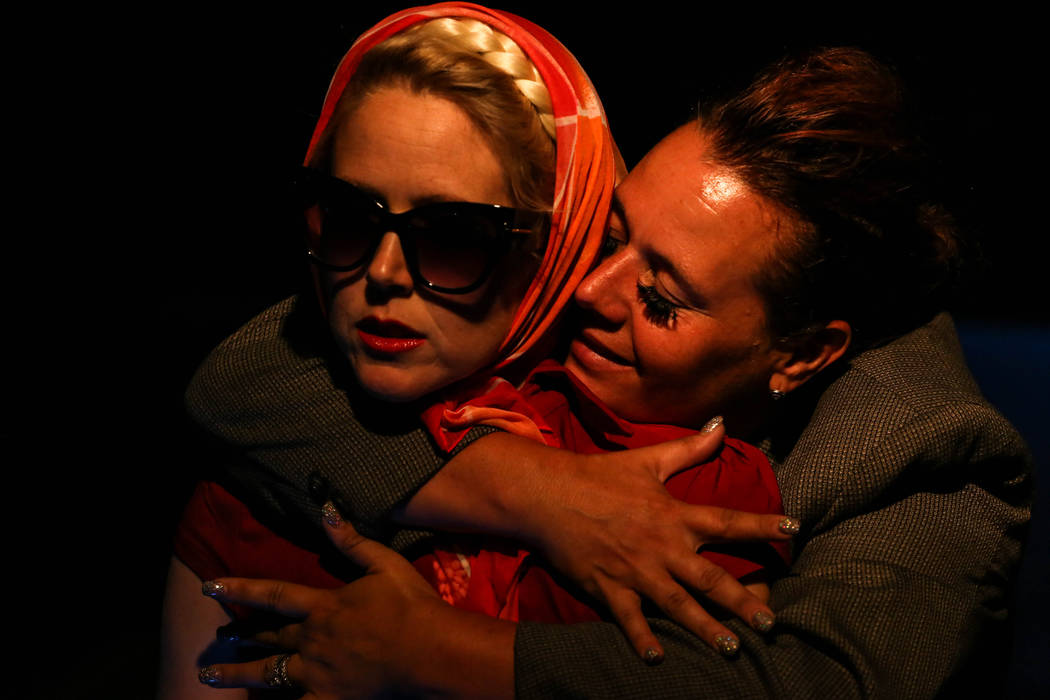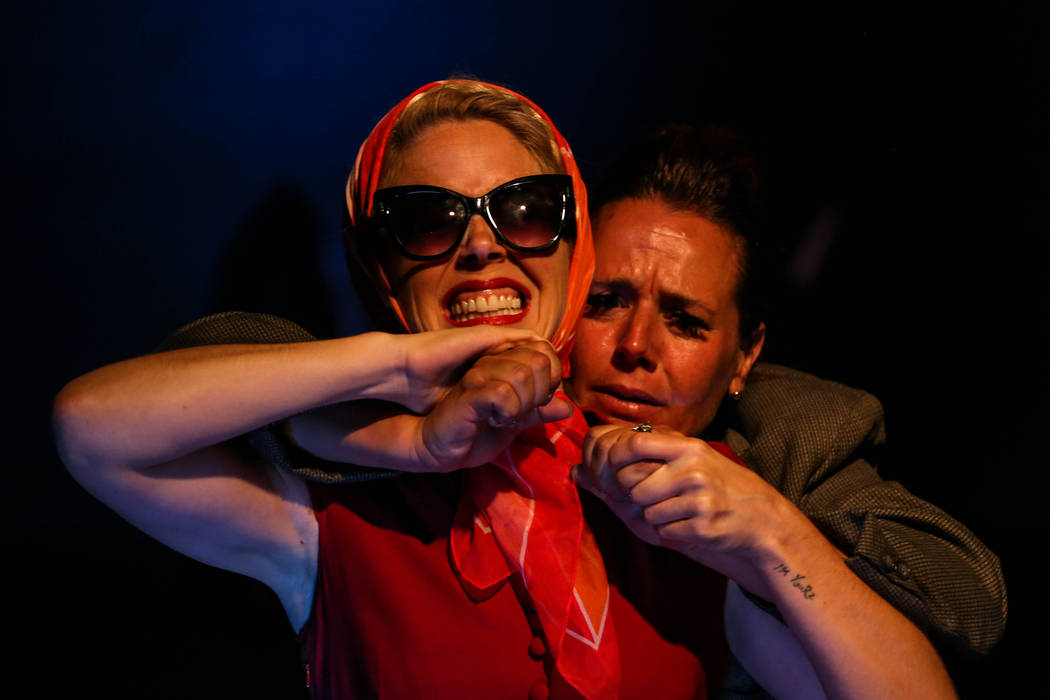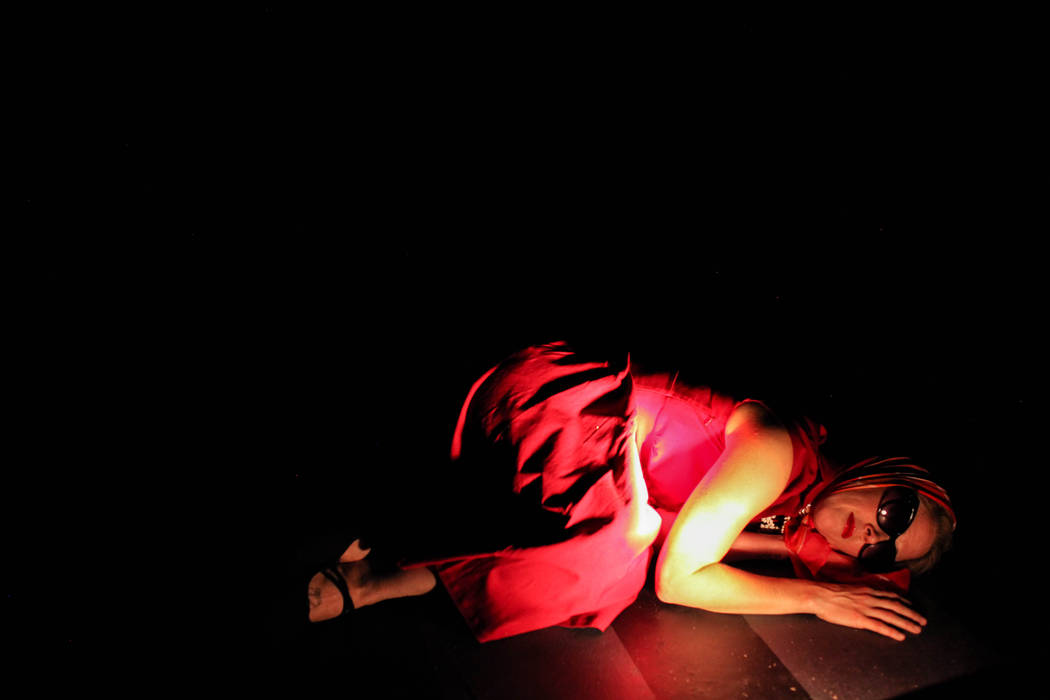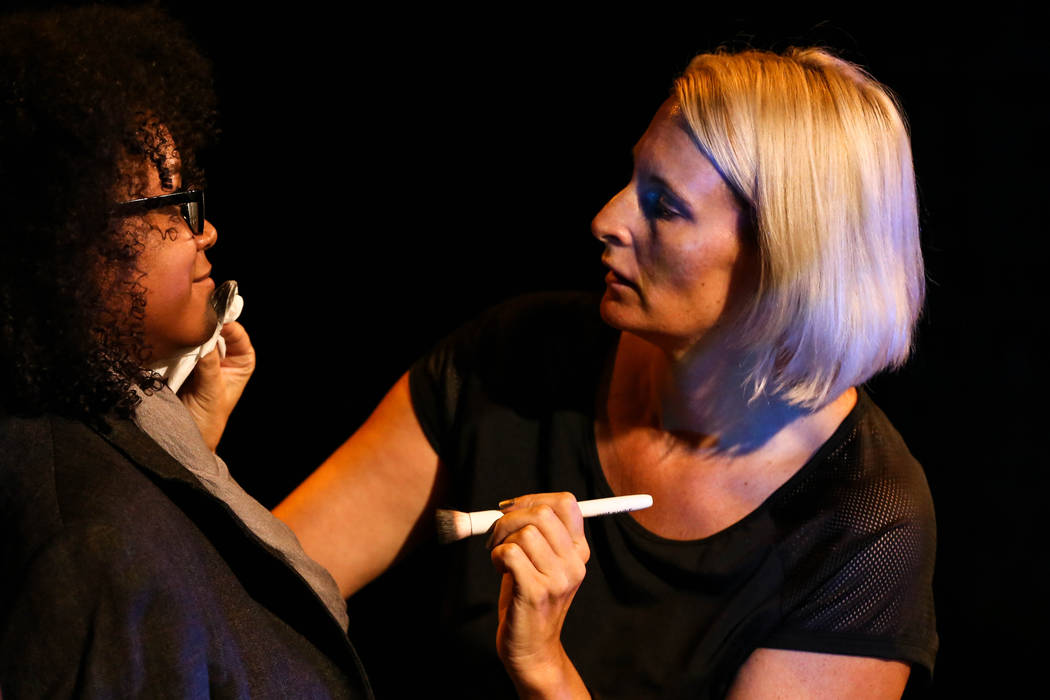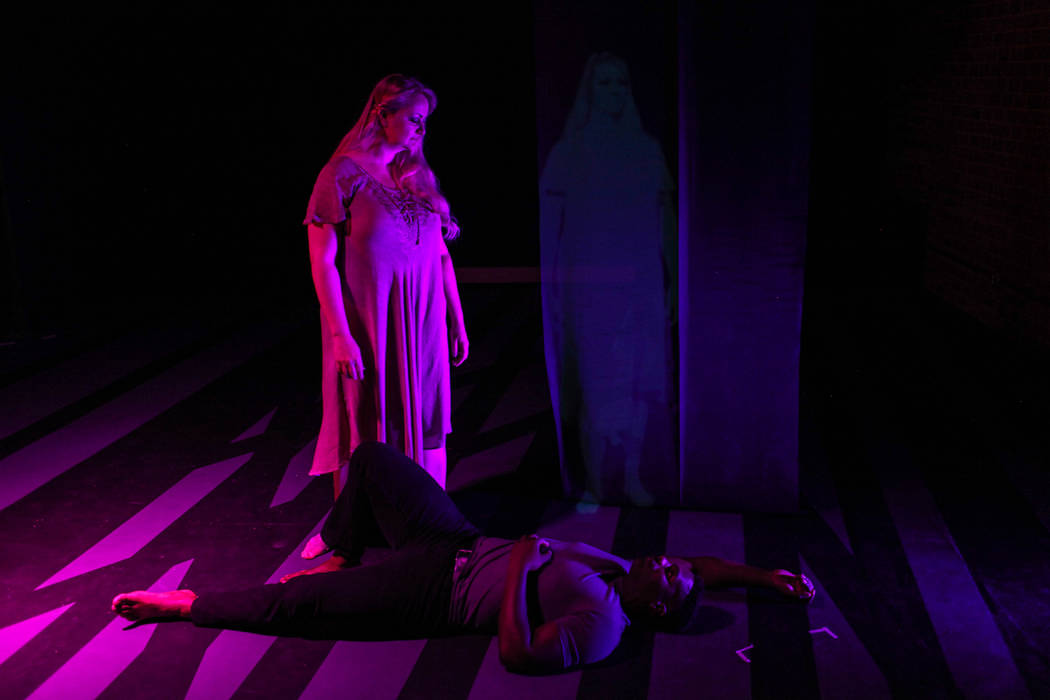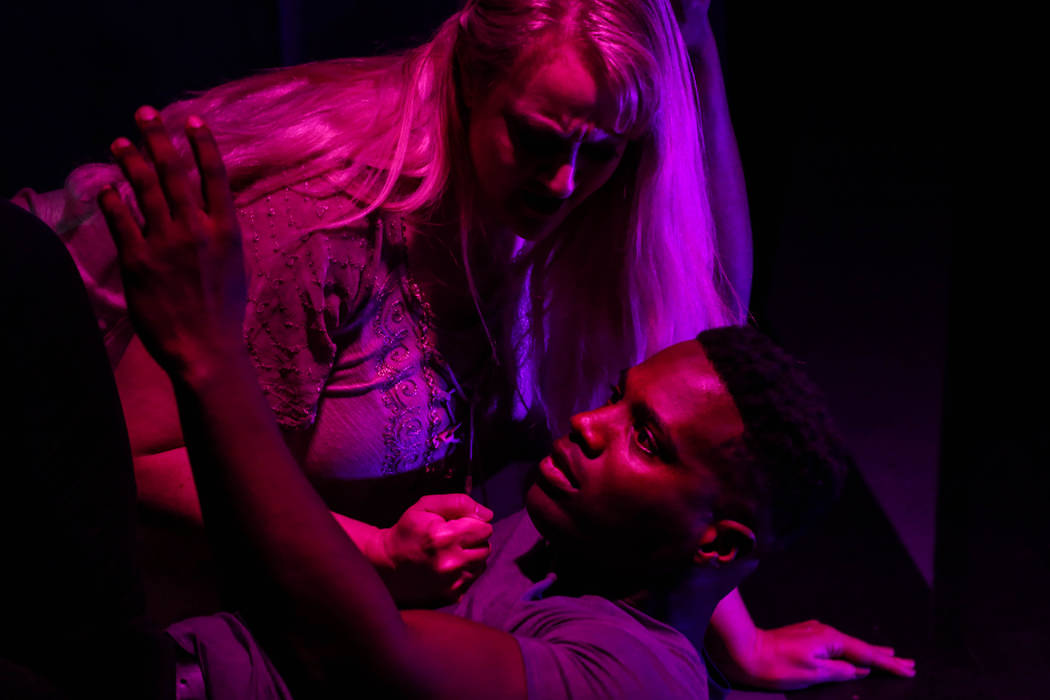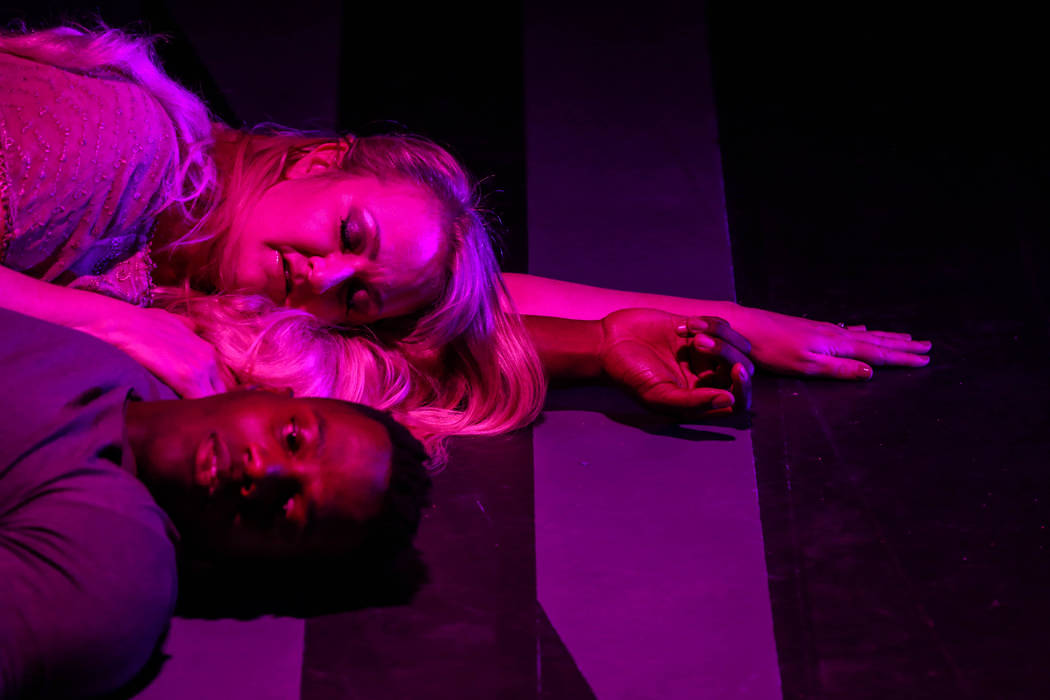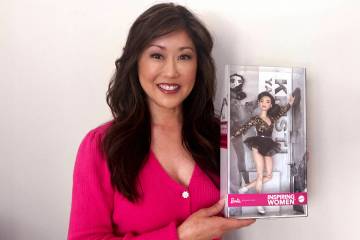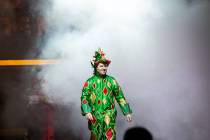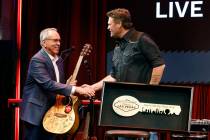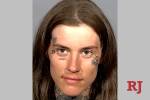Sin City Opera, Cockroach Theatre collaborate on one-act operas
The title alone makes it a Vegas natural.
But “The Seven Deadly Sins” isn’t what you think.
Yes, the central character explores everything from pride to gluttony to lust on a seven-year, seven-city trek to earn enough money to buy a family home. But her story is told in a satirical one-act “sung ballet” by Kurt Weill and Bertolt Brecht, those wonderful folks who brought you “The Threepenny Opera” — and its all-time hit, “Mack the Knife.”
“Seven Deadly Sins” is also the first half of a double bill, debuting this weekend, that marks the first collaboration between Sin City Opera and Cockroach Theatre.
Rounding out the operatic double feature: “Erwartung (Expectation),” with music by modernist master Arnold Schoenberg.
Unlike “The Seven Deadly Sins,” which presents a multiyear tale, the action in “Erwartung” takes place in a second of time — stretched to more than 30 minutes — as a woman searches for her lover in the forest.
Both pieces share a focus on “women and their struggles,” explains Ginger Land-van Buuren, Sin City Opera’s executive director.
In “Seven Deadly Sins,” young Anna hits the road, facing “temptations and torments of the big bad world” that “test her moral compass,” notes director Darren Weller. “It is the journey of Anna’s awakening that I wanted to showcase in the piece.”
The “Erwartung” protagonist, in Land-van Buuren’s view, “is almost like Anna later on — everywoman, later in life.”
Parallels also link the two production companies, she adds.
“We’ve been fans of their work for years,” Land-van Buuren says of Cockroach Theatre. “Sort of knowing their backstory and how they would pop up randomly” to perform, “that was what we do.”
Cockroach now has a permanent home in downtown’s Art Square Theatre, enabling the peripatetic Sin City Opera troupe to perform in a different venue beyond their usual bases at Winchester Cultural Center and Summerlin Library.
“It’s a true co-production,” according to Land-van Buuren, with Cockroach choosing the directors (Weller for “Seven Deadly Sins,” Kate St-Pierre for “Erwartung”), who brought in their own artistic teams. Sin City, meanwhile, is on hand to make sure “the opera elements are guarded and protected,” she adds. “It’s a wonderful, seamless, easy co-production.”
Both pieces will be sung in English — and supertitles will make it even easier for audiences to understand what’s being sung. “Seven Deadly Sins” features piano and percussion accompaniment; “Erwartung” is scored for piano and winds.
St-Pierre likens the Sin City-Cockroach collaboration to “the planets lining up,” adding that “Erwartung” explores “the conscious and the subconscious. It’s really a social experiment,” dealing with the questions “What is reality?” and “Why is she stuck in her own personal inferno and her own hell?”
Schoenberg’s operatic monologue “is not done often” because “it’s so difficult to sing,” the director says. But dramatic soprano Rebecca Morris performs the “dissonant, atonal, mathematical composition” despite the fact that the composer’s “got her doing things that are difficult to do, even when you’re not singing.”
As for “Seven Deadly Sins” leading lady Dina Emerson, who recently retired from Cirque du Soleil’s “Mystere,” the production returns her to the music of Weill, which she first discovered in college.
It’s “a great example of sprechstimme, which can be translated as ‘speaking/singing,” Emerson comments. “The songs and operas of Kurt Weill feel like real people using their voices authentically to express the full range of the human experience.”
And because “he never shies away from uncomfortable subjects,” according to Emerson, Weill’s work “illuminate(s) even the darkest corners of the human experience.”
Weill and Schoenberg: a tale of two composers
Composers Kurt Weill and Arnold Schoenberg aren’t generally paired together, according to Kate St-Pierre, who’s directing Schoenberg’s “Erwartung (Expectation)” as part of an operatic double bill, with Weill’s “The Seven Deadly Sins,” that debuts this weekend as the first joint production from Cockroach Theatre and Sin City Opera.
Yet the two composers are “paired well together,” observes Ginger Land-van Buuren, Sin City Opera’s executive director.
After all, she notes, both were influenced by jazz. Both left Europe after the Nazis rose to power — and both wound up in America.
But each followed a different musical path.
Schoenberg was a pioneer in atonal music, developing the 12-tone system (which, instead of a traditional musical scale, uses 12 different tones related only to one another) that he decreed would “assure the supremacy of German music for the next 100 years” when he discovered it in 1921.
By 1933, however, Schoenberg — who had been teaching the master class in composition at Berlin’s Prussian Academy of Arts — was dismissed from his post because of his Jewish background. He immigrated to the U.S. via Paris — and formally returned to Judaism, which he had abandoned in his youth.
In 1934, Schoenberg moved to Southern California, teaching at both USC and UCLA. He became a U.S. citizen in 1941.
Weill, meanwhile, headed to New York — and Broadway — following stops in Paris and London. (His music was banned in Germany until after World War II because of his Jewish birth and such scathingly satirical collaborations with Bertolt Brecht as “The Threepenny Opera” and “The Rise and Fall of the City of Mahagonny.”)
Although Weill also wrote symphonic works, his musical theater credits remain the key to his renown. Among them: “Lady in the Dark” (with lyrics by Ira Gershwin), “One Touch of Venus” (with S.J. Perelman and Ogden Nash), “Knickerbocker Holiday” (with Maxwell Anderson), which introduced “September Song,” and “Lost in the Stars,” which reunited him with Anderson.
Weill “decided to become a citizen the day on which I arrived here,” in 1935, he said in a 1941 radio broadcast. “I remember very well the feeling I had as the ship moved down the harbor past the Statue of Liberty and the skyscrapers. All about us were exclaiming in amazement at the strange sights, but my wife and I had the sensation that we were coming home.”
Contact Carol Cling at ccling@reviewjournal.com or 702-383-0272. Follow @CarolSCling on Twitter.



